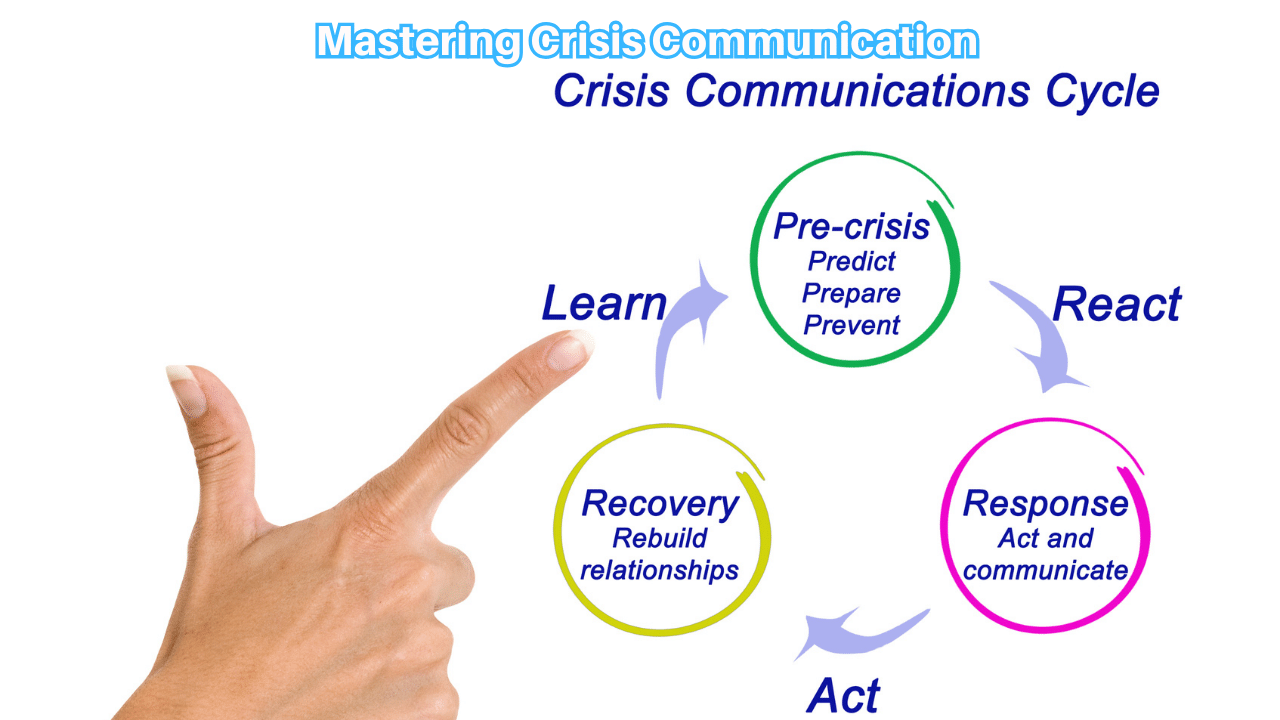In today’s fast-paced and interconnected world, organizations face numerous challenges and uncertainties that can potentially lead to a crisis situation. Whether it be a product recall, a natural disaster, or a PR nightmare, how an organization handles these crises can make or break its reputation. That’s where mastering crisis communication becomes crucial. By understanding the importance of crisis communication, developing a strategic crisis communication plan, and implementing effective strategies, organizations can effectively navigate through challenging times and come out stronger than before.
Understanding the Importance of Crisis Communication

Crisis communication is the process of managing and controlling the flow of information during a crisis. It involves promptly and effectively addressing stakeholders’ concerns, maintaining trust, and minimizing the negative impact on the organization’s reputation. Understanding the importance of crisis communication is essential for several reasons.
Firstly, crises can strike at any time, and without proper communication, misinformation and rumors can spread rapidly, causing further panic and confusion. By having a proactive crisis communication strategy in place, organizations can take control of the narrative and provide accurate information to mitigate potential damage.
Secondly, a crisis can significantly impact an organization’s reputation and stakeholder trust. Effective crisis communication allows organizations to demonstrate transparency, empathy, and accountability, which are essential to rebuilding trust and maintaining positive relationships with stakeholders.
Lastly, crisis communication can help preserve the long-term viability of an organization. By addressing crises promptly and effectively, organizations can minimize financial losses, retain customers and employees, and preserve their overall brand value.
Developing a Strategic Crisis Communication Plan
A strategic crisis communication plan lays the foundation for effectively managing crises. It involves a systematic approach to identify potential risks, create response protocols, and establish communication channels. Developing such a plan is crucial to ensure that the organization can respond swiftly and effectively during a crisis.
The first step in developing a crisis communication plan is to conduct a thorough risk assessment. This involves identifying potential crises specific to the organization and evaluating their potential impact. By understanding the risks, organizations can proactively plan for potential crises and allocate resources accordingly.
Next, a crisis response team should be established with clearly defined roles and responsibilities. This team should include representatives from various departments, such as public relations, legal, and operations. Regular training and simulations should be conducted to ensure that the team is prepared to handle crises effectively.
Additionally, a communication hierarchy must be established to ensure a clear chain of command during a crisis. This ensures that information is disseminated promptly and accurately, preventing confusion and misinformation.
Implementing Effective Crisis Communication Strategies

Once a crisis occurs, implementing effective crisis communication strategies becomes paramount. Here are a few key strategies to consider:
Firstly, organizations should aim for transparency and quick response. Delayed or evasive responses can exacerbate the crisis and erode stakeholder trust. By providing timely updates and being transparent about the situation, organizations can demonstrate their commitment to addressing the crisis and keeping stakeholders informed.
Secondly, organizations should tailor their communication to different stakeholder groups. Each group may have different concerns and information needs. By understanding their specific needs and concerns, organizations can provide targeted and relevant communication, ensuring stakeholders feel heard and supported.
Lastly, organizations should utilize various communication channels to reach stakeholders effectively. This may include press releases, social media, websites, or direct communication. The choice of channels should be based on the preferences of the stakeholders and the nature of the crisis.
Mastering crisis communication is an essential skill for organizations in today’s unpredictable world. By understanding the importance of crisis communication, developing a strategic crisis communication plan, and implementing effective strategies, organizations can navigate through crises successfully and protect their reputation. Remember, a well-executed crisis communication strategy can not only mitigate the impact of a crisis but also strengthen stakeholder trust and enhance the organization’s resilience in the face of adversity.



